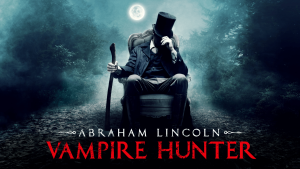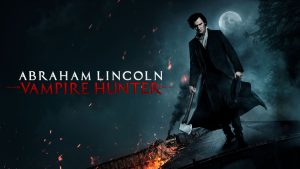
Abraham Lincoln: Vampire Hunter, directed by Timur Bekmambetov, is a film that blends historical drama with supernatural horror, reimagining one of America’s most iconic presidents as a fearless vampire slayer. The concept alone is enough to intrigue, if not bewilder, any potential viewer. But does this audacious mix of genres succeed in creating an engaging movie experience, or does it buckle under the weight of its own absurdity?
Plot Overview
The film, based on the novel by Seth Grahame-Smith (who also penned the screenplay), starts with a young Abraham Lincoln (played by Benjamin Walker) witnessing the death of his mother at the hands of a vampire. This tragic event sets him on a path of vengeance that eventually intertwines with his political career. The narrative cleverly intertwines Lincoln’s historical life events with his secret nighttime pursuits of hunting down vampires, culminating in a climactic battle that aims to shift the course of American history.
Strengths
One of the film’s greatest strengths is its visual style. Bekmambetov, known for his work on action-heavy films like Wanted, brings his signature flair to the action scenes. The vampire battles are fast-paced, stylized, and at times, visually stunning. The combination of slow-motion effects and creative weapon choreography keeps the viewer engaged, even when the plot stumbles.
Benjamin Walker delivers a solid performance as the titular character, managing to embody Lincoln’s stoic determination while also convincing as a man harboring a dark, supernatural secret. The supporting cast, including Dominic Cooper as the vampire mentor Henry Sturges and Rufus Sewell as the villainous vampire leader Adam, also provide commendable performances that help anchor the film’s more outlandish moments.
The film’s blending of historical events with vampire lore is intriguing and at times, quite clever. The idea that vampires played a role in shaping American history, with battles like Gettysburg taking on a whole new meaning, is a unique twist that adds depth to the story.

Weaknesses
However, Abraham Lincoln: Vampire Hunter is not without its flaws. The tone of the film often feels uneven, struggling to find a balance between the serious historical drama and the outlandish horror elements. While the concept is novel, the execution sometimes falters, with certain scenes leaning too heavily into camp without fully embracing it, leaving the audience unsure of whether to laugh or gasp.
The film’s pacing is another issue. At times, it feels rushed, with Lincoln’s journey from vengeful young man to the President of the United States moving at breakneck speed, sacrificing character development in the process. This rapid progression can make it difficult for viewers to fully invest in Lincoln’s personal and political struggles.

Additionally, the CGI, while serviceable, doesn’t always hit the mark. Some of the vampire effects, particularly in the more intense fight scenes, come across as slightly cartoonish, which can pull the viewer out of the moment.
Conclusion
Abraham Lincoln: Vampire Hunter is a film that’s not afraid to take risks, blending two seemingly incompatible genres into a single narrative. While it doesn’t always succeed in its ambitious goals, it’s an entertaining watch for those willing to suspend disbelief and go along for the ride. The film’s unique premise, combined with its stylish action and solid performances, make it worth a viewing, especially for fans of historical fiction or supernatural horror.
However, the uneven tone and pacing issues prevent it from fully realizing its potential. It’s a film that will likely divide audiences—some will appreciate its boldness and creativity, while others may find it too disjointed to fully enjoy. In the end, Abraham Lincoln: Vampire Hunter is a fun, if flawed, cinematic experiment that offers a fresh, if bizarre, take on one of America’s greatest historical figures.
